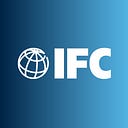By Elena Sterlin
This article was originally published in the October 2019 issue of Healthcare Markets International, a publication of LaingBuisson Media.
When I told my colleagues that this year I would be attending the United Nations General Assembly meetings in New York, they voiced surprise. Our core mission at IFC is fostering private sector growth in emerging markets and I typically don’t attend such public policy-focused meetings. So, why go?
Because the private sector is poised to take a bigger role in helping countries meet their health care goals. On the first day of the UN General Assembly, leaders of all 193 UN member countries adopted a Political Declaration that commits them achieving universal health care coverage by 2030. UN Secretary General Antonio Guterres called the commitment “the most comprehensive agreement ever reached on global health.” Numerous paragraphs of the Declaration make clear that universal health coverage will only become a reality if the private and public sectors work closely together, especially in areas like primary care and access to medicines, vaccines, diagnostic services, and health technologies.
Adoption of the Declaration is a major milestone, one that will have a profound impact on health care systems―and the role of the private sector. To better understand the views of health ministers and the impact that this commitment will have on IFC’s clients and on our joint work with the World Bank, I joined several panels at the UN General Assembly. These conversations focused heavily on the development and rollout of national social insurance systems.
In sharing experiences, the health ministers from Colombia and Georgia, two countries with well-established social insurance systems, urged countries to develop health care financing schemes that link reimbursement to outcomes. Ministers from Egypt, Indonesia, and Kenya, who are just starting to roll out schemes, recounted early successes they have had on Hepatitis C and population screening. At the same time, they acknowledged many challenges around quality control in health care provision, contracting with the private sector, and getting buy-in from other ministries. Despite the challenges, the clear message from all participants was one of firm commitment to implementing social insurance programs.
This development will create more opportunities for the private sector to expand involvement by leveraging its existing strength and its natural ability to adapt. As governments become a major payor, they will look for partners who can provide quality health care solutions at a lower price point for major pools of population. When discussing private sector partnerships, I heard health ministers highlight outpatient and preventive care, vertical integration that allows treatment at the most appropriate point of care, standardization of processes, and integration of technology to reduce costs, reach remote areas and provide transparency of information. They also spoke extensively about need to measure outcomes and ensure quality of care.
None of this will be an easy transition for governments and private providers. Both sides have a lot of questions on how to make this new integrated system work. How do we convince our finance ministries that health is an investment in human capital, not a cost? How do we know if we have budgeted correctly? How do we break down barriers between ministries to work in a more concerted way to improve population health―for example, through healthy diets and sport at schools? How do we define priorities and measure outcomes of health care funding? How do we contract with the private sector? How do we ensure quality of delivery? How do we integrate digital health care?
Support from experienced governments, consultants, and multilateral organizations will be critical to making this transition a successful one. The World Bank and IFC already have experience working with, respectively, the public and private health care sectors. We must work side by side even more closely. In his remarks at the United Nations, World Bank President David Malpass underscored this need for collaboration, mentioning as a case in point the IFC-World Bank’s join effort to expand mobile technology-enabled health insurance in Kenya.
Another positive example is our new focus on health care quality. We have a program through which the World Bank and IFC work with regulators and service providers to assess health system quality and set priorities for improvements. We just had a very positive experience in Colombia in implementing this quality tool. All in all, I can say without hesitation that the entire World Bank Group is firmly committed to helping the UN meet the Declaration’s worthy goal.
Over the past 18 years IFC has focused on supporting the growth of affordable, quality private health care in emerging markets. In many of those markets public and private health care provision exist in quasi-parallel worlds. A common assumption I see among governments is that the private sector is a minor player in health care provision. In early 2000s this was indeed the case, with the private sector being highly fragmented and of varying quality.
The market has since changed. Private players, seeing an unmet demand from the growing―and aging―middle classes, have stepped in to bridge the gap. This has led to the emergence of more good quality, innovative, well-managed and integrated private health care providers. Today in many countries the private sector is providing 25–50 percent of health care services.
The challenge going forward will be for governments and private providers to join together, rather than work in parallel, to develop new solutions to deliver health care for all.
Elena Sterlin is the Head of Health and Education at IFC.
